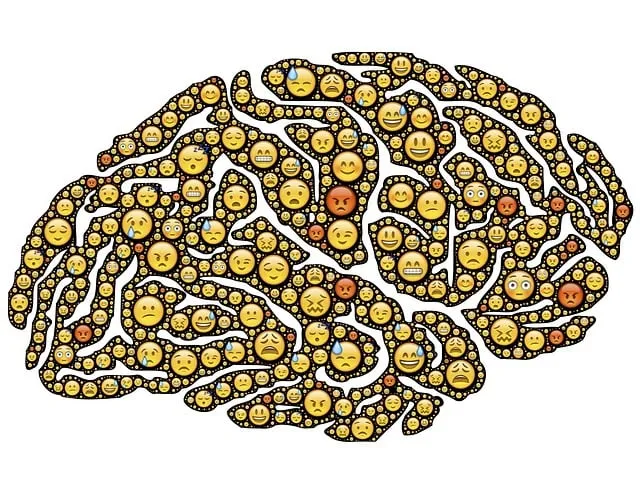In today's digital age, the demand for accessible mental wellness solutions is rising, especially among younger generations, due to growing awareness of mental health challenges. Broomfield Kaiser Permanente has led this movement by leveraging digital tools, including innovative mental wellness apps. These apps offer personalized content like mood tracking, meditation guides, and CBT techniques, empowering individuals to actively manage their well-being. By integrating mindfulness exercises, educational resources, and supportive communities, these apps enhance effectiveness. Development involves gathering insights from healthcare professionals and patients, ensuring alignment with evidence-based practices and an intuitive interface that encourages empathy building. Data management security and privacy protection are paramount considerations.
In today’s fast-paced digital age, there’s a growing need for accessible mental wellness tools. This is especially evident with the rise of remote work and increasing awareness about mental health. Mental wellness apps offer a promising solution, providing individuals with resources to manage stress, anxiety, and depression. This article explores the crucial role of these applications in promoting psychological well-being, focusing on key features, development considerations, and highlighting Broomfield Kaiser Permanente’s innovative approach to mental health app design.
- Understanding the Growing Need for Mental Wellness Apps
- Key Features and Functionality of Effective Mental Health Apps
- Development Process and Considerations for Broomfield Kaiser Permanente Mental Health App
Understanding the Growing Need for Mental Wellness Apps

In today’s fast-paced world, the demand for accessible and effective mental wellness solutions is on the rise, particularly among younger generations. This shift can be attributed to a growing awareness and openness about mental health challenges. Broomfield Kaiser Permanente mental health services have been at the forefront of this movement, recognizing the value of digital tools in supporting patient care. The need for innovative solutions is evident, as traditional methods may not cater to everyone’s preferences or schedules.
Mental wellness apps offer a convenient and often personalized approach to addressing various issues, including stress reduction methods, mindfulness meditation, and emotional regulation techniques. With these apps, users can access resources and tools that fit their unique needs, providing support between therapy sessions or as a standalone solution for those seeking guidance. This trend reflects a broader shift towards embracing technology to improve overall well-being.
Key Features and Functionality of Effective Mental Health Apps

Effective mental health apps are designed to offer a range of key features and functionalities that support users’ well-being. One of the primary components is personalized content tailored to individual needs, whether it’s managing stress, anxiety relief, or coping with specific mental health conditions. These apps often incorporate tools like mood tracking, meditation guides, and cognitive behavioral therapy (CBT) techniques, enabling users to actively engage in their mental wellness journey.
Additionally, integration of features such as mindfulness exercises, educational resources, and access to a supportive community enhances the app’s effectiveness. For instance, Broomfield Kaiser Permanente mental health apps may include live chat or video sessions with healthcare providers, ensuring continuous support and cultural competency training to cater to diverse user backgrounds. Emotional intelligence-based features can also foster self-awareness and enhance users’ ability to navigate and communicate their feelings effectively.
Development Process and Considerations for Broomfield Kaiser Permanente Mental Health App

The development process for a mental wellness app like the Broomfield Kaiser Permanente Mental Health app requires careful consideration of user needs and clinical best practices. The initial step involves gathering comprehensive insights from healthcare professionals, patients, and stakeholders within Broomfield Kaiser Permanente to understand specific challenges and goals related to mental health support. This stage is crucial for aligning the app’s features with evidence-based anxiety relief and positive thinking strategies.
Designing an intuitive user interface that fosters empathy building strategies is essential for engaging users and encouraging consistent usage. The app should offer personalized tools, such as meditation guides, mood trackers, and cognitive behavioral therapy (CBT) exercises, to cater to diverse mental health needs. Additionally, integrating secure data management systems and ensuring compliance with healthcare regulations are vital considerations to protect patient privacy and maintain trust.
The development of mental wellness apps, such as the Broomfield Kaiser Permanente mental health app, is a significant step towards addressing the growing need for accessible and personalized mental healthcare. By incorporating key features like mood tracking, mindfulness exercises, and therapeutic resources, these applications offer a comprehensive approach to improving user mental well-being. The success of such initiatives lies in their ability to provide support tailored to individual needs, making mental health care more inclusive and convenient. As the demand for digital mental health solutions continues to rise, further innovation and collaboration between healthcare providers and app developers are essential to create effective tools that enhance overall mental wellness.
